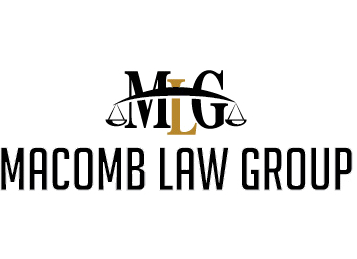Over the last few years, auto insurance providers have relied on fraud defenses to cut injured motorists off from millions of dollars in benefits. But a recent Michigan Court of Appeals case says attendant care fraud committed after an accident may not always sink your auto insurance claim.
Parents’ Attendant Care Fraud Threatens Brain-Injured Son’s Auto Insurance Claim
In 2009, then 19-year-old Justin was riding on the hood of a vehicle when the driver sped up and turned suddenly, throwing him off the car. Justin suffered a fractured skull and a traumatic brain injury (TBI) requiring constant “24/7” supervision.
Justin’s mother Louise and father Richard provided this attendant care for years. They would submit periodic claims to MEEMIC, their no-fault insurance provider for each day the parents provided supervision. MEEMIC cancelled their insurance policy in 2010, but continued to pay the attendant care benefits according to Michigan no-fault law.
Then, in 2014, Meemic investigated Justin’s claim history. It discovered that even though Justin’s parents had been reporting 24/7 care, they were not providing him with daily direct supervision. Justin had been in jail for traffic and drug offenses, and had been admitted to an inpatient substance-abuse rehabilitation facility. Meemic said that information showed Justin’s parents had committed attendant care fraud, cancelled his auto insurance benefits, and sued his parents in MEEMIC Ins Co v Fortson to get its money back.
Auto Insurance Fraud Can Sink Your Claim for Benefits
In cancelling Justin’s claims, the insurance company was relying on a series of recent cases that show how auto insurance fraud can sink your claim for benefits. If an insurance company can prove you made false statements on your insurance application, or your claim for benefits, it can void your policy and deny all no-fault benefits. Often, insurance companies raise fraud defenses for:
- False statements about where the car is garaged
- Omitted history of past accidents or traffic tickets
- Additional drivers, especially teenagers left off the policy
An auto insurance fraud defense can cut off “innocent third parties” from benefits because it voids the policy entirely – making it as though the person were uninsured when the accident happened. In Justin’s case, his parents had committed the attendant care fraud and he was the “innocent third party”.
Court Says Fraud After-the-Fact is Different
But in MEEMIC Ins Co v Fortson, the Michigan Court of Appeals said that Justin’s case wasn’t like those other cases. In the earlier court cases, the fraud happened at the time the insured obtained the insurance policy in the first place. Because the policies were issued based on the false information, “the fraud in the procurement essentially taints the entire policy and all claims submitted under it.”
In Justin’s case, he submitted his claim when there was a valid policy in place. The attendant care fraud didn’t happen until after the initial claim and had been filed. The court said:
“The mere fact that fraud arose in connection with attendant-care services forms submitted after Justin made his claim simply has no bearing as to whether there was a valid policy in effect at the time he made his claim.”
That meant MEEMIC could not cancel Justin’s coverage based on his parents’ attendant care fraud after-the-fact.
MEEMIC also tried to argue that Justin was bound by the terms of his parents’ auto insurance contract. But the court said the auto insurance company could not “avoid paying no-fault benefits to an injured claimant if someone other than the claimant commits fraud and triggers a fraud-exclusion clause that allows the policy to be avoided.” Because Justin’s no-fault coverage was governed by statute as a resident relative of the insured driver, the court held that MEEMIC could not use contract language to get around its obligations to pay Justin’s legitimate no-fault benefits just because his parents committed attendant care fraud after the fact.
Auto insurance companies are always trying to find new ways to avoid paying no-fault benefits. Fraud is one of their favorite defenses. But Fortson shows that claims of attendant care fraud don’t have to sink your claim for auto insurance benefits. At Macomb Law Group, our auto insurance claim attorneys know how to fight back against fraud defenses. If you or a loved one have been seriously injured in a motor vehicle accident, contact Macomb Law Group and get our team working for you.
Author
-

I began working in personal injury law more than 20 years ago, starting as a law clerk during my first year of law school at Wayne State University School of Law in Detroit. After passing the bar exam in 2002, I went on to become a partner at a series of law firms before opening the Macomb Law Group in 2017.

